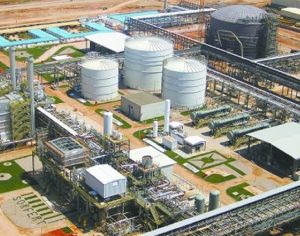 Nigeria, July 12, 2017//- A National Working Group on peace building and conflict prevention has been launched to monitor and engage with the various social formations in Nigeria towards peace and conflict prevention.
Nigeria, July 12, 2017//- A National Working Group on peace building and conflict prevention has been launched to monitor and engage with the various social formations in Nigeria towards peace and conflict prevention.
The National Working Group made up of leaders of youth driven groups will work with leaders of indigenous communities, faith-based groups and the civil society towards a people-driven mechanism for peaceful co-coexistence in Nigeria.
The National Working Group on Peace thinks that for any peaceful resolution of conflict, the people must be involved. It is their own future that is at stake.
They are more likely to be committed to peace when the conflict resolution processes involved them at the level of conception and implementation. Peace building cannot be a property of a third party or the authority alone, but an asset of the people themselves.
The Working Group announced today followed series of summits and conflict management trainings for youth controlled organisations and critical stakeholders in the six geo-political zones.
The programme culminated in two historical events in Kaduna and Abuja this few days ago which were declared open by the Acting President, Prof Yemi Osinbajo and the Kaduna State Governor, Mallam El Rufai.
Both were represented respectively by Senator Babafemi Ojudu and Mr Samuel Aruwan. Other government officials represented were the Minister of Interior, General Abdulrahman Dambazau, the Police, Civil Defence and the National Assembly.
The programme organized by Nigeria’s foremost media group, Journalists for Democratic Rights, (JODER) with the support of the Ford Foundation, West Africa Regional Office, drew participants from various segments including but not limited to religions, cultural, social and ethnic groupings. No fewer than 500 groupings, representing millions of people and hundreds of communities have taken part in the project so far.
Announcing a 19-member Working Group, drawn from government, civil society, ethnic and religious based groups, the Executive Director of Journalists for Democratic Rights, (JODER) Mr Adewale Adeoye said conflict often fester when the people and authorities concerned fail to nip it in the bud through fair and open-minded platforms where the key actors constructively engage each other. He said the governments’ efforts needed to be complemented by the people themselves especially when at times authority initiatives are viewed with doubts by conflict actors and peace beneficiaries.
JODER stated that some of the identified causes of conflict in Nigeria are economic exclusion leading to the lack of access to the essentials of live, religious intolerance which continue to spur violent conflict including suicide bombings, armed conflict in the Maghreb region which fuels migration of desperate people displaced by the conflict to Nigeria, climate change that has crept into most of the Northern states with negative impact on food security and stiff, often bitter confrontation for land and green resources.
This has also led to mass movement of people from the Sahel with most of them ending up in Nigeria, seen as the regional economic watershed.
Other sources of conflict identified are environmental pollution, dislocation of human and natural resources in the Niger-Delta and in the Savannah, proliferation of small arms in the hands of non-state actors driving violent crimes, anger, public rage and imminent threat to food security. JODER said one significant element has been absent: A people driven platform and initiative to counterpart
The group said in recent times, bottled up disenchantment have taken the turn of avoidable violent confrontations leading to the loss of human lives, including women and children.
African Eye Report



